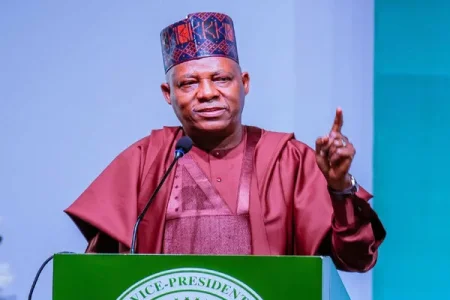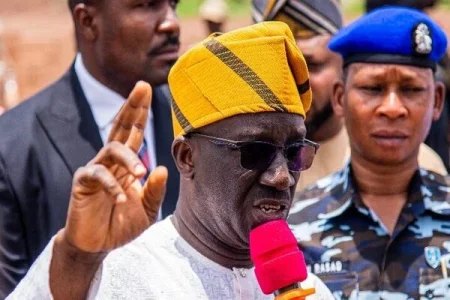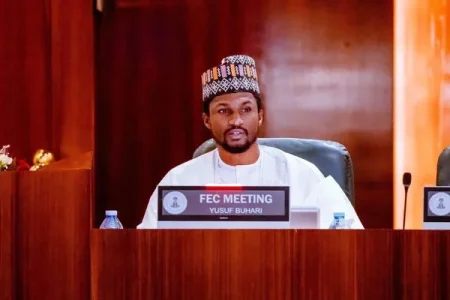
Discover Nigeria's ambitious plan to reach a $1 trillion economy by 2030 through enhanced economic and financial inclusion initiatives. Vice President Kashim Shettima leads the launch of the Aso Accord, aiming to eradicate poverty and stimulate sustainable growth nationwide.
The Nigerian government has initiated a new economic strategy aimed at propelling the country towards a $1 trillion economy by 2030 through enhanced economic and financial inclusion. Vice President Kashim Shettima announced the launch of the Economic and Financial Inclusion Operating Model, highlighting its pivotal role in advancing President Bola Ahmed Tinubu's agenda for broad-based prosperity and poverty alleviation.
This initiative, part of the Aso Accord introduced earlier this year, aims to achieve universal access to financial services and foster sustainable economic growth across Nigeria. Shettima emphasized the importance of legislative interventions and strategic policies in achieving these goals during the inaugural meeting of the implementation team.
Dr. Nurudeen Abubakar Zauro, Technical Advisor to the President on Financial Inclusion, reported substantial progress in implementing the accord, supported by funding from the Bill & Melinda Gates Foundation. The initiative seeks to empower local governments and stakeholders through capacity-building initiatives and legal frameworks to ensure effective policy implementation and national coordination.
This collaborative effort with stakeholders like the Lagos Business School underscores the government's commitment to transforming Nigeria's economic landscape and improving the livelihoods of its citizens.




